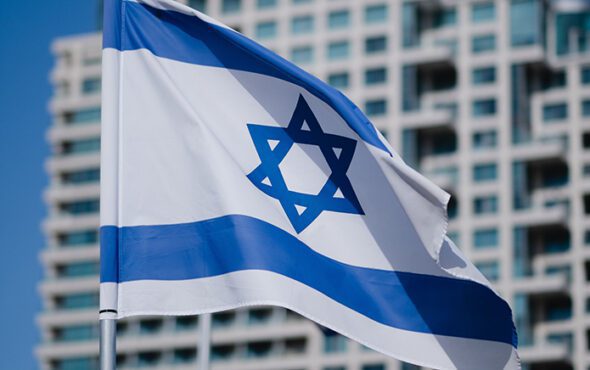
LGBTQ+ Israelis have expressed alarm as far-right politicians with a history of homophobia prepare to take seats in the cabinet under a coalition deal.
Having placed first in the Nov. 1 election, conservative Prime Minister-designate Benjamin Netanyahu and his Likud party have signed deals with the Religious Zionism (RZ) party and other far-right groups and ultra-orthodox parties to achieve a stable parliamentary majority.
RZ leader Bezalel Smotrich, who was quoted describing himself as a “proud homophobe” in 2015, is expected to become finance minister.
Far-right nationalist lawmaker Itamar Ben-Gvir, who took part in a “beast parade” mocking LGBTQ+ Pride along with Smotrich, was named as the incoming national security minister. Both men say they have since moderated their positions.
Noam, a far-right religious party that opposes LGBTQ+ rights, has also agreed to join the coalition, along with the ultra-Orthodox United Torah Judaism (UTJ).
The parties’ inclusion in the government has many in the LGBTQ+ community deeply worried.
Here are the details:
What is the Religious Zionism party and what is its stance on LGBTQ+ rights?
The Religious Zionism party – a hardline conservative Zionist group whose leaders oppose Palestinian statehood and want the occupied West Bank annexed – is set to be a kingmaker in a coalition deal.
It led an alliance of several hard-right groups for the elections, including Ben-Gvir’s Jewish Power party and Noam.
The parties – who have now formally split back into separate factions but remain allies – together won 14 of the 120 seats in the Knesset parliament.
RZ – and its allies Noam – have suggested they wish to curb Pride events in recent comments quoted by Israeli media.
In addition to calling himself a proud homophobe, RZ leader Smotrich last year said he had “a problem with LGBTQ+ culture” and likened same-sex marriage to incest, according to the Times of Israel newspaper.
Both he and Ben-Gvir were among the leaders of a “beast parade” in Jerusalem in 2006. The event was held in opposition to Jerusalem’s LGBTQ+ Pride march, and saw goats and donkeys paraded through the streets.
RZ did not respond to a request for comment.
Smotrich has since told Israeli media that he regrets the “beast parade”, and Ben-Gvir also said he had changed his views.
What could the new government mean for LGBTQ+ rights in Israel?
Israel is one of a handful of Middle Eastern countries – along with Jordan and Bahrain – that allow same-sex relations, in a region where several states impose the death penalty.
However, same-sex partners cannot marry in the country, although foreign same-sex marriages are recognised.
Many LGBTQ+ activists fear the new administration could lead to a rollback of rights.
“The (LGBTQ+) community is in emotional distress. We feel threatened by what is about to come,” said Chen Arieli, who is deputy mayor of Tel Aviv, a member of the left-wing Labour party and a veteran LGBTQ+ activist.
She said the greatest short-term threat comes from repeatedly tabled proposals for an “override clause” that, if passed, would allow a parliamentary majority to override Supreme Court rulings.
“Our rights were achieved in the Supreme Court, none of our rights are officially written in laws. The real danger is the Israeli Knesset could cancel it,” she said.
The Supreme Court ruled in favour of same-sex surrogacy rights in 2021 and ordered the government to recognise foreign same-sex marriages in 2006.
Gilad Halahmi, a gay RZ member, said his personal experience shows that Religious Zionism has become LGBTQ+-friendly.
“My boyfriend and I hosted Bezalel Smotrich and Ben-Gvir in our house,” said Halahmi, a 38-year-old activist against illegal immigration, adding that Smotrich’s “proud homophobe” remark was made sarcastically and taken out of context.
What have Netanyahu and other coalition groups said?
Avi Maoz, Noam’s sole lawmaker, has called for the cancellation of the annual Jerusalem gay pride march, which he described as “an abominable and promiscuous parade”. Maoz has said he is not anti-gay, but opposed to the LGBTQ movement.
However Netanyahu – who has said he will be prime minister for all Israelis “without exception” – pledged there will be no ban on Pride events.
Ben-Gvir told the Israel Hayom newspaper last month that he had walked back on hardline anti-LGBTQ+ views and assured minorities he would protect them.
“I’ve grown up, I’ve moderated and I’ve come to understand that life is more complicated,” he said.
Asserting that he and liberals “agree on 90% of issues”, he said he would not seek to impose religious law nor curb freedom of dissent, “and even if I’m not
keen on the (Gay Pride) parade, I will ensure utmost protection for the men and women marching”.What will happen next?
Talks to form a government are still ongoing. Netanyahu missed an initial deadline of Dec. 11 to formalise coalition agreements, and has been granted an extension to Dec. 21.
The main sticking point in talks has been who gets which ministerial post and the distribution of power between them, Israeli media has reported.
LGBTQ+ groups and advocates said they would be closely watching the new administration, which is set to be the most right-wing government in the country’s history.
Although big cities will have enough LGBTQ+ people and supporters to push back against anti-gay rhetoric, smaller districts will be more vulnerable, said
Ayala Reifler, the chief executive of Bat-Kol, an organisation for LGBTQ+ women.
“Society in Israel is mostly accepting, but when there is a loud voice of against it, it is frightening,” she said.
“In the big cities, like Jerusalem, Pride parades will continue. But when the government responds to these events very negatively, there is no support for small places to flourish (and) to be out in the open.”
Reporting by Daniel Ben-Ami.
GAY TIMES and Openly/Thomson Reuters Foundation are working together to deliver leading LGBTQ+ news to a global audience.



